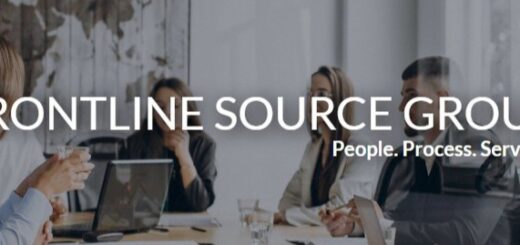New How to Future-Ready Leaders: Identifying Executives
The Value of Future-Ready Leaders in a Changing Business Environment It is impossible to overestimate the importance of future-ready leaders in the quickly changing business environment of today. The ability to adapt and flourish in the face of change is crucial, as I’ve learned while navigating the intricacies of contemporary organizational dynamics. Due to global challenges, evolving consumer preferences, and technology breakthroughs, the business landscape is no longer static & calls for a new kind of leadership. Leaders who are prepared for the future are those who plan for and welcome change, leading their companies through adversity with fortitude & vision. We are currently hiring for various positions in our company.
Key Takeaways
- Future-ready leaders are crucial in navigating the constantly changing business landscape.
- Characteristics of future-ready leaders include adaptability, strategic thinking, and a growth mindset.
- Identifying future-ready leaders within your organization involves assessing their ability to innovate and lead through change.
- Developing future-ready leaders through training and mentoring is essential for preparing them to tackle future challenges.
- Future-ready leaders play a key role in navigating organizational change and driving success in the midst of uncertainty.
The ability of these leaders to encourage creativity & adaptability among their teams is what makes them significant. I’ve found that companies run by forward-thinking individuals are more likely to be able to adapt to changing market conditions and take advantage of new opportunities. They foster an environment that values constant learning & flexibility, which is crucial in a world where disruption is commonplace.
Thinking back on my personal experiences, I see that in today’s cutthroat environment, the capacity to change course swiftly & successfully can make the difference between success and failure. Future-Ready Leader Characteristics As I continue to research what makes future-ready leaders unique, a number of important traits keep coming up. Above all, the most important attribute is adaptability. Understanding that adaptability is essential for negotiating the intricacies of contemporary business, these leaders actively seek out change in addition to being receptive to it. They have a growth mindset, which means they see difficulties as chances for personal growth rather than as things to ignore. Their ability to adapt enables them to change tactics and strategies in response to fresh data or evolving situations.
Emotional intelligence is another distinguishing feature. Future-ready leaders are adept at understanding and managing their own emotions while also being attuned to the feelings and motivations of others. They can establish solid bonds with their teams thanks to this ability, which promotes trust and cooperation.
Leaders who place a high priority on emotional intelligence foster an atmosphere where workers feel appreciated and understood, which boosts morale & productivity, as I have personally witnessed. These leaders are also skilled communicators who can clearly express their vision and motivate others to support common objectives. Discovering Future-Ready Leaders in Your Company Finding future-ready leaders in an organization necessitates having a sharp eye for potential & a dedication to identifying a range of skills. When I consider my own company, I see that conventional success indicators, like tenure or prior performance, might not always be a reliable indicator of a leader’s future readiness. Rather, I try to find people who show that they are open to learning, taking chances, and questioning the status quo. These people are excellent candidates for leadership positions in the future because they frequently display an innate curiosity and a desire to investigate novel concepts.
Also, I’ve discovered that evaluating interpersonal skills is just as crucial to this identification procedure. Leaders who are capable of navigating intricate social dynamics and encouraging teamwork are prepared for the future. In times of crisis, they frequently take the initiative, exhibiting fortitude and a composed manner that gives others confidence.
I can more effectively identify individuals who have the skills required to lead in a constantly shifting environment by giving staff members the chance to demonstrate their leadership potential, for example, through cross-functional projects or leadership development initiatives. Training and Mentoring to Develop Future-Ready Leaders After identifying possible future-ready leaders in my company, I must make an investment in their growth through focused training and mentoring initiatives. Giving these people growth opportunities is, in my opinion, crucial to preparing them for the difficulties they will encounter. Enhancing abilities like strategic thinking, problem-solving, and emotional intelligence should be the main goal of training programs.
I can help guarantee that they are prepared to take on the challenges of contemporary leadership by providing them with these resources. Another important factor in creating leaders who are prepared for the future is mentoring. Connecting up-and-coming leaders with seasoned mentors facilitates knowledge sharing & offers insightful advice on handling organizational difficulties.
Mentoring creates a sense of community and empowers mentees to take charge of their own growth, and I have personally seen its transformative power. I can develop a pool of future-ready leaders who are equipped to lead their teams through change by fostering a mentoring culture within my company. The Function of Future-Ready Leaders in Managing Organizational Change Future-ready leaders are essential in guiding organizations through times of transition. I’ve learned from my experiences that these leaders are frequently the ones who can clearly communicate a vision in the face of uncertainty. Their ability to effectively communicate with their teams ensures that everyone feels included in the process and understands the reasoning behind changes.
This openness promotes trust and lessens opposition to change. Leaders who are prepared for the future are also skilled at using data and insights to guide decisions during changes. They know how important it is to be quick and responsive, utilizing real-time data to modify plans as necessary. I have witnessed firsthand how leaders who adopt data-driven decision-making can better manage change in their own organization and keep their teams focused on the objectives of the company even in the face of uncertainty. By promoting a culture of flexibility and fortitude, these leaders enable their groups to welcome change instead of being afraid of it.
Analyzing case studies of prosperous future-ready leaders offers important insights into successful leadership techniques. The CEO of Microsoft, Satya Nadella, is one figure that comes to mind. Microsoft experienced a dramatic internal culture change under his direction, moving from a competitive setting to one that prioritizes cooperation and creativity. In addition to reviving Microsoft’s workforce, Nadella’s emphasis on empathy and inclusivity has established the business as a pioneer in artificial intelligence and cloud computing. Mary Barra, the CEO of General Motors, has another strong argument. As the auto industry transitions to electric vehicles and sustainable practices, Barra has played a crucial role in guiding GM through a time of substantial change.
Her ability to articulate a clear future vision and her dedication to innovation have been crucial to GM’s successful transition. In a sector that is experiencing unheard-of disruption, Barra is a prime example of what it means to be a leader who is prepared for the future by putting sustainability first and embracing technologies. Employee Engagement & Retention Aside from their impact on organizational performance, future-ready leaders have a major impact on employee engagement and retention. I’ve seen firsthand how leaders who put employee growth and well-being first foster an atmosphere where people feel appreciated & inspired.
Employee loyalty to the company is higher when they perceive that their leaders care about their development & success. Leaders who are prepared for the future also cultivate an environment that values candid criticism and open communication, which raises worker engagement. These leaders instill a sense of ownership in their workforce by promoting team members to voice their thoughts and worries. I’ve found that companies run by people who value engagement have lower employee turnover and higher job satisfaction levels.
This encouraging cycle highlights how crucial it is to develop leaders who are prepared for the future and who can motivate their teams to be devoted and loyal. The Future of Leadership: Adapting to Global & Technological Changes As I think about the future of leadership, it is evident that in a world that is becoming more technologically advanced and interconnected, adaptability will continue to be a crucial component of successful leadership. Because technology is developing so quickly, leaders must keep up with new developments that may have an effect on their sectors. I understand that embracing technology involves more than just acquiring new skills; it also entails cultivating an attitude that encourages ongoing experimentation & learning.
Global changes will also force leaders to think beyond conventional lines, including changes in the population, economic ups and downs, & environmental issues. Future-ready leaders need to be able to navigate different viewpoints and promote inclusivity within their organizations. They also need to be culturally competent. I am enthusiastic about how leadership may change in response to these issues in the future, opening doors for cross-border and cross-sector cooperation.
In conclusion, it is impossible to exaggerate the significance of leaders who are prepared for the future in the rapidly evolving business environment of today. They are positioned as important forces behind organizational success due to their flexibility, emotional intelligence, & dedication to promoting innovation. We can better manage change and improve employee engagement and retention by identifying, nurturing, and empowering these leaders within our companies.
It is crucial that we keep an open mind to fresh concepts and methods as we embrace the future of leadership because they will influence how we lead in a world that is becoming more complex by the day.
If you are interested in learning more about executive leadership and staffing, you may want to check out the article “Professional Staffing Agency Frontline Source Group Offers a 5-Year Guarantee on Direct Hire Placements” on the Frontline Source Group CEO Blog. This article discusses the importance of finding the right executives who can thrive through change, which is a key aspect of being future-ready leaders. You can read the article here.
FAQs
What are future-ready leaders?
Future-ready leaders are executives who possess the skills, mindset, and adaptability to thrive in an ever-changing business environment. They are able to anticipate and respond to changes in technology, market trends, and global events, and are able to lead their organizations through these changes effectively.
What are the key characteristics of future-ready leaders?
Future-ready leaders are characterized by their agility, resilience, strategic thinking, and ability to inspire and motivate their teams. They are also adept at fostering innovation, embracing diversity, and leveraging technology to drive business success.
How can future-ready leaders be identified?
Future-ready leaders can be identified through a combination of assessments, interviews, and performance evaluations. Key indicators of future readiness include a track record of successfully leading through change, a willingness to take calculated risks, and a strong focus on continuous learning and development.
Why is it important for organizations to have future-ready leaders?
In today’s rapidly evolving business landscape, organizations need leaders who can navigate uncertainty, drive innovation, and lead their teams through change. Future-ready leaders are essential for ensuring the long-term success and sustainability of an organization in a dynamic and competitive market.
How can organizations develop future-ready leaders?
Organizations can develop future-ready leaders through targeted leadership development programs, mentorship opportunities, and exposure to diverse experiences and challenges. Providing ongoing feedback, coaching, and support can also help leaders build the skills and mindset needed to thrive in a rapidly changing business environment.





